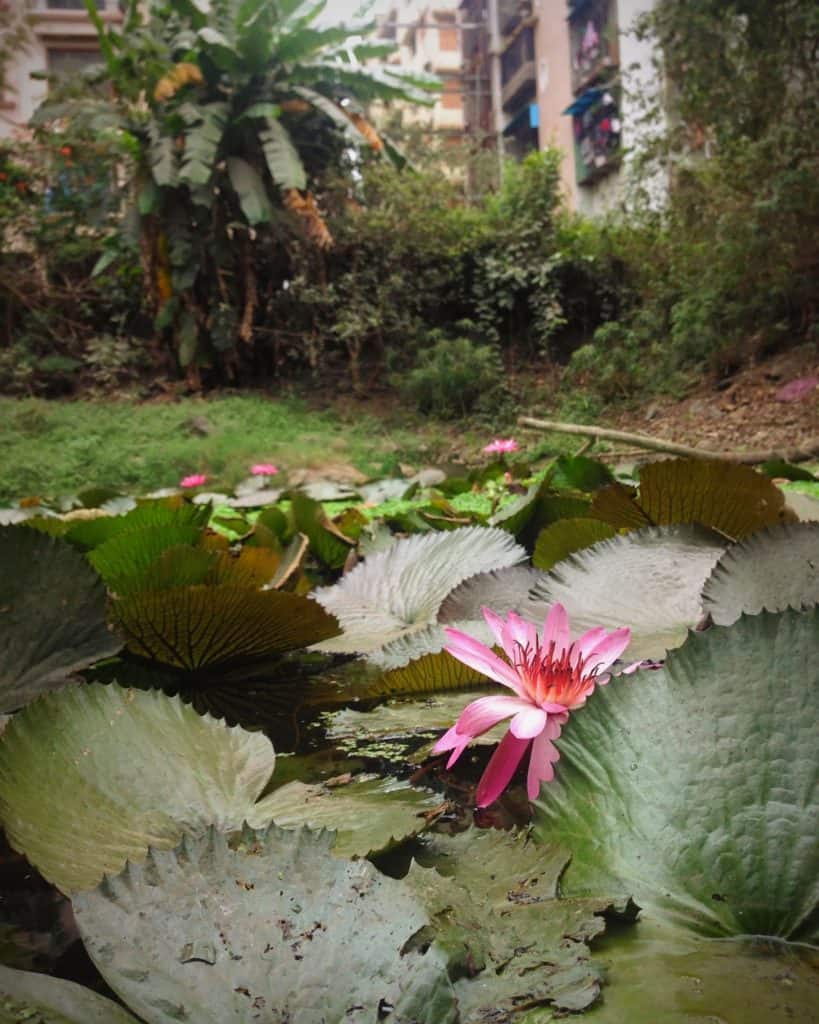Viral infections engulf Mumbai
This monsoon, severe bouts of illnesses have gripped the city. While COVID cases have dropped, there is an increase in cases of swine flu. Authorities have decided to reduce the prices of swine flu tests – currently standing at Rs 2500-3500.
“It costs around ₹2,500 for the swine flu throat swab. For those who are not undergoing the test, we are clinically diagnosing with upper respiratory tract infection and high fever. The fever subsides as soon as we start the anti-viral (Oseltamivir),” said Dr Shekhar Shirvaikar, a family physician from Goregaon.
Source: Hindustan Times
Environmentalists oppose CIDCO planning in Nerul
A spontaneous protest against city-planner CIDCO saw a community of environmentalists join hands as they formed a human chain at a plot in NRI Seawoods, Nerul.
Green activists had been upset over the sale of a land parcel in Nerul, Seawoods, whose 30% area was under CRZ-1A. The protest was against CIDCOs decision to sell said property and endanger precious mangroves in the area.
“CIDCO, when it started the development of Navi Mumbai in 1970, had a good environmental policy to reserve at least 40% as open spaces. But now that policy has been given a go-by and the planning agency is hell-bent on destroying mangroves and wetlands under the guise of development,” said NatConnect Foundation Director B N Kumar.
Source: The Times of India
Read more: How BMC takes care of public health when it rains

BMC is creating a 3D digital map of Mumbai city
The Brihanmumbai Municipal Corporation (BMC) has begun creating a three-dimensional digital model of Mumbai city. In 2021, they tried the project on a pilot basis for South Mumbai’s Worli area. The 3D mapping will create a digital map of Mumbai’s buildings, roads, bridges, underpasses, water bodies, modes of transport, and traffic islands apart from its open spaces, civic amenities and slums. It will have a 360-degree panoramic street view.
The civic body has invited a request for proposal (RFP) for the project and has welcomed ideas from consultants and experts for the same.
“While the world we live in is 3-dimensional in nature, planning and development activities encompassing urban governance, city infrastructure upgrades are still being carried out on 2D maps. To meet the demands of cities in the 21st century, it is imperative that urban governments can visualise cities in 3D for comprehensive 360-degree views, undertake simulations and conduct detailed analysis on the data, all of which is inefficient and close to impossible on archaic 2D maps,” The BMC said in his RFP.
Source: Indian Express
Proposals to divert over 34,000 mangrove trees taken up by ministry body
For the quadrupling of railway lines between Virar and Dahanu, a total 24,302 mangroves are proposed to be felled. An additional 10,502 mangroves are proposed to be felled for an offshore propylene pipeline cutting across Thane Creek.
“The propylene pipeline project has been cleared by the REC today and their recommendation will be sent to the union environment ministry. The request to fell mangroves for the Virar-Dahanu railway line has been deferred as no representative from the MRVC was present in the meeting today. Further details will be given in the minutes of the meeting,” said an official with the state forest department.
Source: Hindustan Times
Plastic-wrapped single-use items made of paper, and aluminium banned
The Maharashtra government has decided to ban single-use disposable cups, dishes, plates, glasses, forks, bowls and containers made of paper and aluminium and laminated or coated with plastic, according to a statement released by the chief minister’s office on July 26th.
“Once coated with plastic or laminated, such products become non-biodegradable material thus it was decided to ban them,” a senior official from the environment department said.
In 2018, the manufacture, usage, storage, distribution, wholesale and retail sale, import and transportation of all kinds of plastic bags (with or without handles) as well as single-use disposable items made of plastic and thermocol (including dishes, cups, plates, glasses, fork, bowls, forks, spoons, straw, containers, non-woven polypropylene bags, pouches to store liquid, plastic to wrap or store products and packaging of food items and small PET and PETE bottles with capacities less than half a litre) were banned in accordance with the Maharashtra Plastic and Thermocol Products (Manufacture, Usage, Sale, Transport, Handling and Storage) notification.
Source: Hindustan Times
[Compiled by Saachi D’Souza]